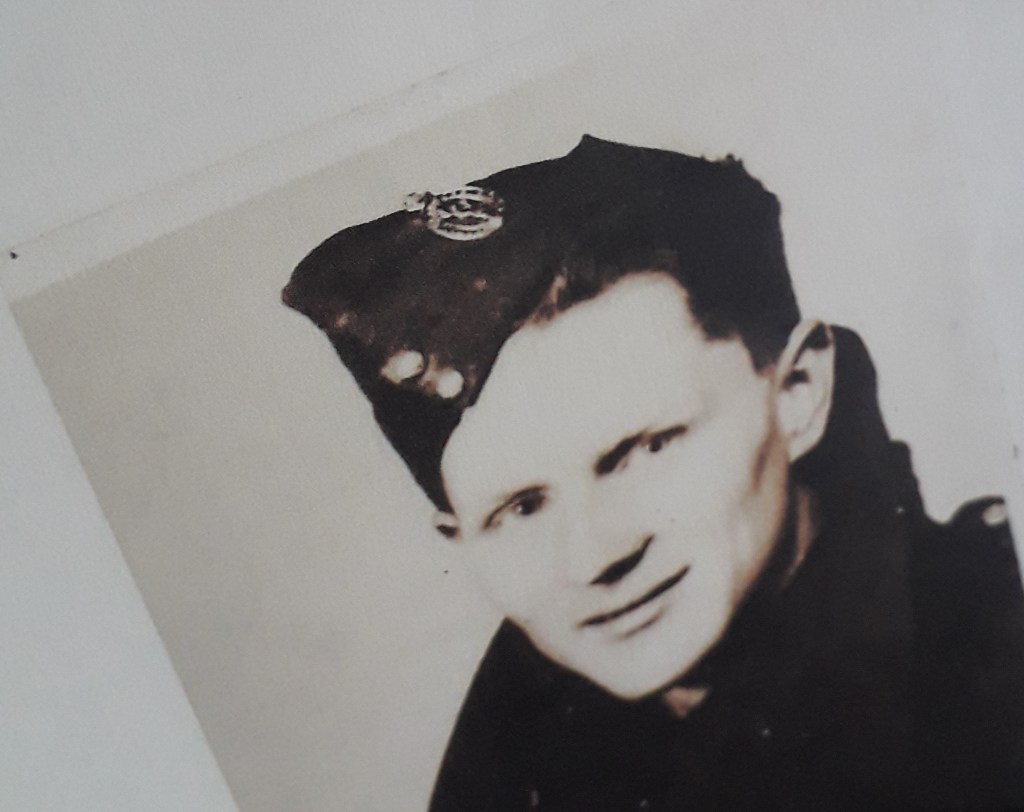Perched on a bough in a black alder tree, trench rot soaking his booted feet, armpits and groin and tunic unkempt, teeming, a pale airman watched two strangers beneath. They were stood in shirt and tie, pinstripe beneath mackintosh and tucked into black rubber boots, ankle-deep in the river he knew to be the Quaggy, though it bore only some semblance to the waterway he remembered.
The two men studied a map, folded thus and bull-clipped to a board, turning this way and that, gesturing aspects of the map in the things that surrounded them. They spoke in an unnatural manner, in a strange rhythm that jarred in the airman’s ear. One of the men made an occasional note in a slim pocket book with a stub of pencil that he kept behind an intolerable ear. The slovenly river was couched now by two concrete walls that would have the men hidden from the street beyond, and vice versa.
The banks of the Quaggy were hidden also behind the slab grey walls and bramble weeds – some of them giants bearing clusters of tiny white flower heads; some of them resembling great curls of barbed wire rust – furnished the long gone path and reflected in the slow, rubbish water. An odour of rodent and decay and wet rubble war permeated the river breeze and beneath this rancid yellowed smell further foul perfumes tined, rising from the between the barbs, spectral.
He whistled the nursery rhyme absentmindedly as he studied the curious men and the foliage shuddered around him and the clouds stood shoulder to shoulder just above the rooftops and Manor Park. The ruined street beneath vibrated with men and women and children and babies and buses and vans and bicycles, all hushing the puddles beneath them. Sometimes the street became a hum and he remembered falling. Even if he were to be noticed by nearly anyone he would appear to them to be merely an old crow cawing in a tree.
The men faded from his attention and he found himself now high in the sky. Hither Green mushroomed grey and fell away. He followed the river north through Lee and Ladywell to Lewisham where the Quaggy became the Ravensbourne. He settled on a post top at the end of Darmody Road, calling her name. The grey clouds tumbled south and the evening became blanket grey. The house held its shape, but was muted. The little front garden was grey and the railing, once black painted iron, was grey, also. She stood at the kitchen window, breathing.
She thought the world somehow softened and though it had become suddenly sadder (perhaps it was the clouds, the rain, the approach of twenty-five years), she summoned a smile and there was beauty.
She drew her nose from the glass and fingered a simple, childlike flower shape, quite artfully, in one motion, into the condensation.
“Fred,” she said.
He had fished with a net on a stick of bamboo the Quaggy for life several times as a boy near to the spot where the curious men were earlier. The river had applauded then, when the banks were lush with moss fern, uncoiling and verdant. A glass jar, globbed with tadpole jam. The river giggling.
A crow cawing.

…she summoned a smile and there was beauty. She drew her nose from the glass and fingered a simple, childlike flower shape, quite artfully, in one motion, into the condensation.
What a marvelous story!
LikeLiked by 1 person
Thanks, MM! x
LikeLiked by 1 person
A wonderful, thought provoking, story
LikeLiked by 1 person
Thank you, Derrick.
Tweaking here & there.
LikeLiked by 1 person
Poignant!
LikeLiked by 1 person
I always get lost in your storytelling, your choice of words. That is a compliment. 😆 You even make the odour of rodent and decay engaging to read.
LikeLiked by 1 person
🙂
Thanks, Michelelee x
LikeLiked by 1 person
My pleasure. 🌻
LikeLike
oh hurray!
LikeLiked by 1 person
Ah, Nick, the photo given by a client because it looks so much like you? But the timbre of rot and decay, a raven view
LikeLiked by 1 person
He started life as someone else – a Napoleonic Guardsman, perhaps – but I liked the phrase pale airman so much that, when it came to the redraft, the old ‘client photo’ sprang to mind…so, well spotted, Kim…part poetics, part laziness! x
LikeLiked by 1 person
Wow, Nick! You observe without judgement, each moment moving the story along and surprise us. And I love it.
LikeLiked by 1 person
Rick, I really appreciate these words because, sometimes, you know, one just doesn’t know. Thank you!
LikeLike